International
A year on from Argentine abortion law, change is slow
AFP
A year ago Argentina joined the limited ranks of Latin American countries to have legalized abortion, but while that gave hope to millions of women, changing mentalities, practices and infrastructure has proved more difficult.
“In small villages, you go for an ultrasound in the morning and in the afternoon the baker congratulates you on your pregnancy,” Monik Rodriguez, 33, told AFP.
Rodriguez, who has three children, runs a service accompanying women who want to have an abortion in Salta, a conservative Catholic province in the South American country.
Away from the big city of Buenos Aires, where women erupted in celebration when the law was approved, many in more remote and conservative areas of Argentina face the same stigma as before.
“There are still things that need to come out of hiding,” said Rodriguez, who can take up to 125 telephone calls a month as part of the project launched by the Women’s Strength civil association.
“The most important thing is to listen. It’s about trying to overcome the hurdles, accompanying them through the health system so they don’t get lost in the bureaucratic labyrinth.”
Rodriguez takes calls from all sorts: teenagers and first-time mothers to women with large families and even those that are pre-menopausal.
“On this line, abortion is not recommended but neither is motherhood romanticized,” said Rodriguez, who underwent a secret abortion a decade ago when already mother to one child.
“I was late and had an abortion. It went badly and I had to go to hospital. The tests showed I hadn’t been pregnant.
“It was the secrecy that created worry. Along with misinformation, that is what puts us at risk.”
The government estimates that 3,000 women died between 1983 and 2020 in clandestine abortions, of which there were up to 500,000 a year.
– Anti-abortion pressure –
For a century, abortion was only legal in cases of rape or if the mother’s life was at risk.
Legalization has not led to a sudden spate of abortions, particularly in places like Salta.
Miranda Ruiz, 33, is the only doctor in Tartagal — a small town of 75,000 people in Salta — not to exercise her legal right to be a conscientious objector to carrying out abortions.
Anti-abortion groups in the town are influential.
In September, Ruiz was briefly detained following an accusation by the aunt of a 21-year-old patient that she had performed an abortion beyond the authorized limit of 14 weeks.
Feminist groups are demanding that her case be dismissed.
“It is a way of bringing the other doctors to heel,” said Sofia Fernandez, a member of the National Campaign for the Right to Abortion — a collective of 300 feminist organizations that have been fighting for 15 years for change.
They say there are still 1,500 people facing criminal cases over abortions.
The complaint against Ruiz was the only one made in 2021, although there have been 36 court filings against the law, mostly claiming it is unconstitutional.
“Of those, 24 have already been dismissed,” said Valeria Isla, the director of sexual and reproductive health at the health ministry.
– ‘Huge inequality’ –
“There is a huge inequality in access to the practice depending on location,” said Isla.
During the course of 2021, the number of specialist medical teams carrying out abortions rose from 943 to 1,243 despite the pandemic complicating matters.
Distribution of the drug misoprostol, which chemically provokes abortions, rose from 9,000 in 2019 to more than 43,000 in 2021.
“But there is a lot of demand and we’re not able to increase (the number of) these (teams) at the necessary rate. It’s a structural stumbling block,” added Isla.
There were more than 32,000 abortions conducted in public hospitals and clinics in 2021, said Isla, whose big goal for 2022 is to train medical teams specialized in abortions, to make their services more widely available and to inform women of their rights and the tools at their disposal.
That would help Rodriguez avoid taking calls from desperate young teenagers like one “locked in a bathroom crying … she had just dropped a home pregnancy test down the toilet and couldn’t afford to buy another one.”
International
Nine People Killed in Two Armed Attacks in Manabí, Ecuador
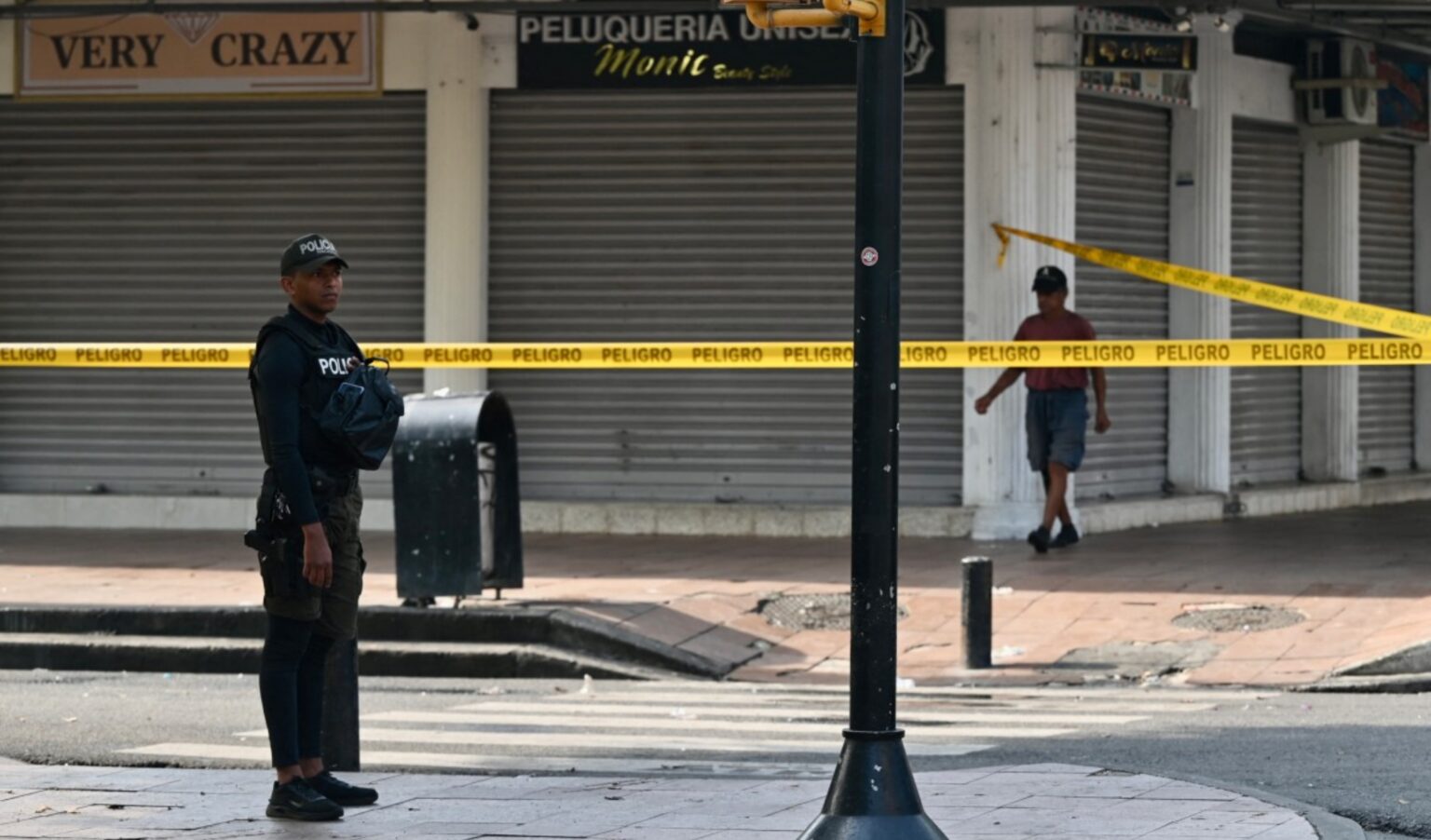
At least nine people were killed Monday in two nearly simultaneous armed attacks in the province of Manabí, located on Ecuador’s Pacific coast, one of the areas hardest hit by violence in the country, according to the National Police.
The first attack left seven people dead and took place in Camarones, a rural area of the Jama canton. The second occurred in the sector known as La Y, in the seaside town of Canoa, part of the San Vicente canton, where two people were killed.
According to preliminary reports, both incidents occurred early Monday morning when armed men intercepted the victims. Authorities said the motives behind the attacks remain under investigation.
The assault in Camarones happened around 1:15 a.m. local time, when a group of armed individuals stormed a ranch in the area. The victims have not yet been officially identified.
About 15 minutes later, in Canoa, two men traveling in a motorized taxi were intercepted by armed suspects riding motorcycles and shot. One of the victims was identified as a 28-year-old passenger, while the identity of the driver has not yet been confirmed.
The attacks occurred just days after another multiple homicide on February 12 at a ranch in San Juan de las Cucarachas, a rural area of the Santa Ana canton in Manabí, which left six people dead.
Manabí has been experiencing escalating insecurity linked to disputes among organized crime groups, including drug trafficking networks and territorial control conflicts. In response, the government has maintained a state of emergency in the province since August to address the surge in violence attributed to these criminal organizations.
International
Over 40 Million Affected by Major Snowstorm in Northeastern U.S.
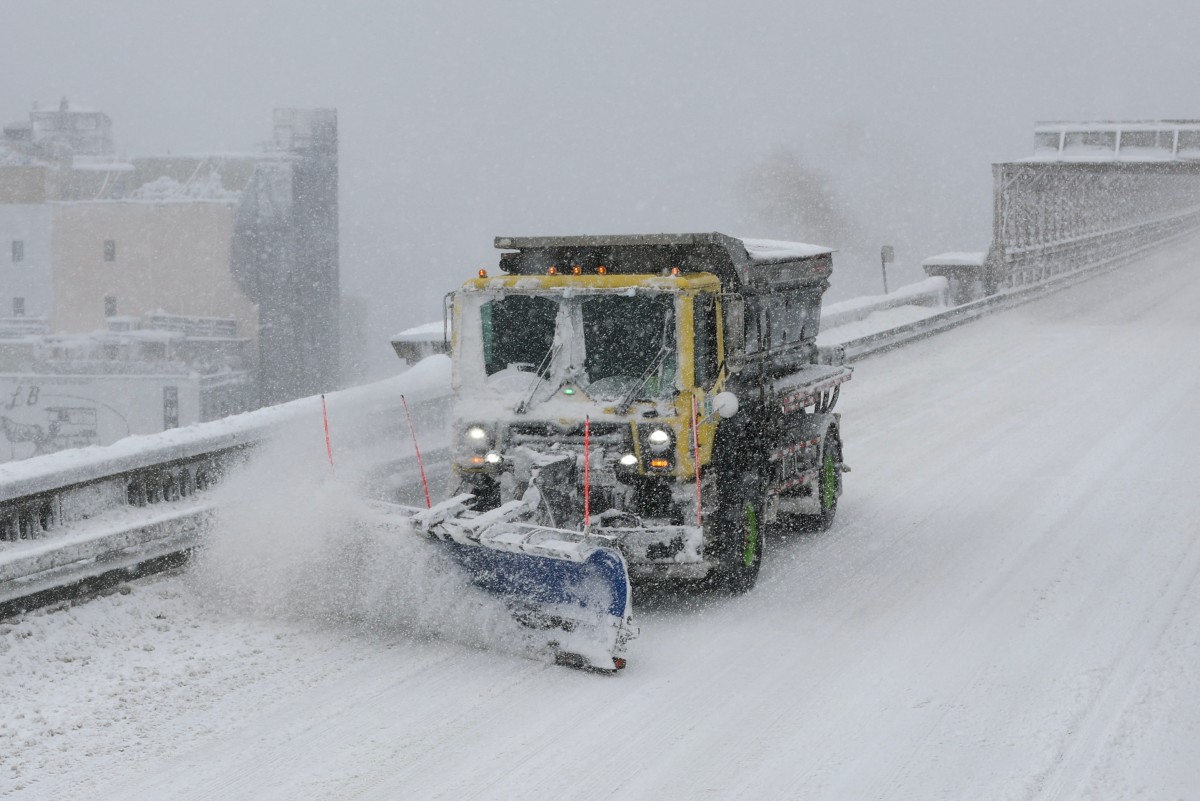
More than 40 million people across the northeastern United States are facing a new major snowstorm this Monday, including residents of New York City, where local authorities have shut down roads to traffic.
The storm triggered widespread flight cancellations early in the morning and caused power outages affecting thousands of homes and businesses throughout the region.
New York City Mayor Zohran Mamdani banned non-essential vehicle travel at least until noon and ordered the closure of public schools as a precautionary measure. Authorities in neighboring states, including New Jersey and Rhode Island, imposed similar restrictions to ensure public safety.
This marks the second major winter storm to hit the East Coast in less than a month, leading to growing frustration among residents.
“I’m fed up. I don’t want to see another snowflake,” said Vincent Greer, a resident of Wildwood, New Jersey, as he shoveled accumulated snow from in front of his building.
Officials continue to urge residents to remain indoors, avoid unnecessary travel, and monitor local advisories as crews work to clear roads and restore power.
International
Ninth Victim Recovered After Deadliest U.S. Avalanche in Decades
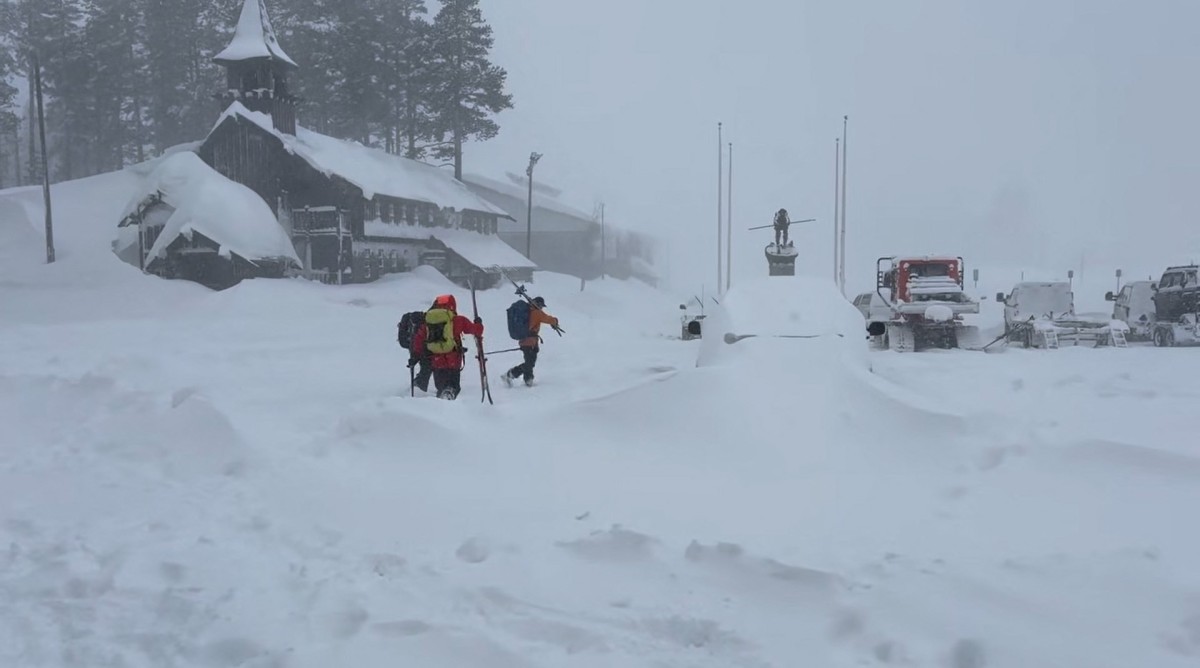
Rescue teams in California on Saturday recovered the body of the ninth and final victim of a deadly avalanche in the Sierra Nevada mountains, according to the local sheriff’s office.
The avalanche struck a group of 11 skiers and four guides on Tuesday as they were returning from a three-day backcountry trip near Castle Peak, a 2,777-meter (9,111-foot) mountain and popular tourist destination on the U.S. West Coast.
Six people were rescued alive on Tuesday. Authorities said the incident marks the deadliest avalanche in the United States since 1981.
“All nine individuals who lost their lives in the February 17 Castle Peak avalanche have been safely recovered from the mountain,” the Nevada County Sheriff’s Office said in a statement.
“There are no words that can truly capture the magnitude of this loss, and our hearts grieve alongside the families affected by this catastrophic event,” Sheriff Shannan Moon said.
Officials had warned on Thursday that search operations would likely continue through the weekend due to severe weather conditions in the area.
Survivors were able to call for help shortly after the avalanche occurred. However, near-zero visibility and the risk of additional snow slides prevented rescue teams from reaching them for several hours.
-
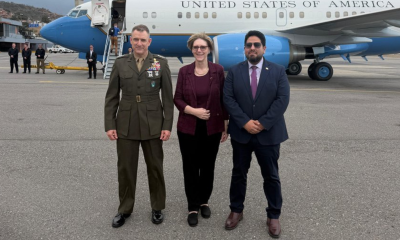
 International4 days ago
International4 days agoTop U.S. Military Commander Meets Interim Venezuelan Leaders After Maduro’s Capture
-

 International3 days ago
International3 days agoTrump Defies Supreme Court With New 10% Global Tariff
-
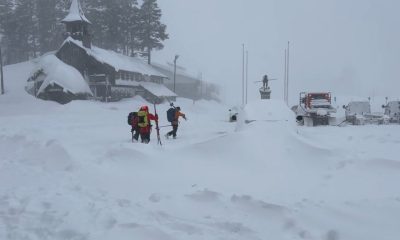
 International2 days ago
International2 days agoNinth Victim Recovered After Deadliest U.S. Avalanche in Decades
-

 International3 days ago
International3 days agoThree Injured in Mail Package Explosion at Buenos Aires Gendarmerie Academy
-

 International3 days ago
International3 days agoU.S. Targets Members of Outgoing Boric Administration With Visa Revocations
-
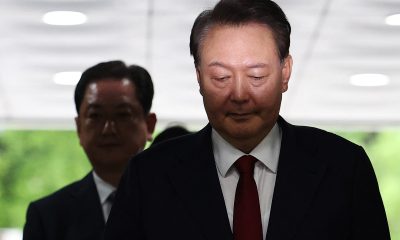
 Sin categoría4 days ago
Sin categoría4 days agoFormer South Korean President Yoon Suk-yeol Sentenced to Life for Insurrection
-

 International10 hours ago
International10 hours agoOver 40 Million Affected by Major Snowstorm in Northeastern U.S.
-

 International10 hours ago
International10 hours agoNine People Killed in Two Armed Attacks in Manabí, Ecuador


























